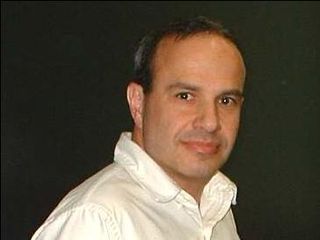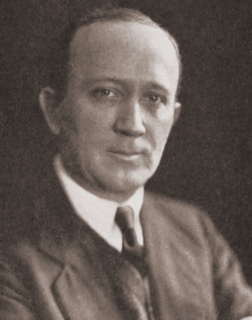A Quote by Bertrand Russell
A religious creed differs from a scientific theory in claiming to embody eternal and absolutely certain truth, whereas science is always tentative, expecting that modification in its present theories will sooner or later be found necessary, and aware that its method is one which is logically incapable of arriving at a complete and final demonstration.
Related Quotes
Every church pretends to have found the exact truth. This is the end of progress. Why pursue that which you have? Why investigate when you know? Every creed is a rock in running water: humanity sweeps by it. Every creed cries to the universe, "Halt!" A creed is the ignorant Past bullying the enlightened Present. The ignorant are not satisfied with what can be demonstrated. Science is too slow for them, and so they invent creeds. They demand completeness. A sublime segment, a grand fragment, are of no value to them. They demand the complete circle... the entire structure.
Many theories of the ancient world seem terribly childish today, a hodge-podge of fables and false comparisons.But our theories will seem childish five-hundred years from now.Every theory is based on some analogy, and sooner or later the theory fails because the analogy turns out to be false. A theory in its day helps to solve the problems of the day.
For the theory-practice iteration to work, the scientist must be, as it were, mentally ambidextrous; fascinated equally on the one hand by possible meanings, theories, and tentative models to be induced from data and the practical reality of the real world, and on the other with the factual implications deducible from tentative theories, models and hypotheses.
Philosophers of science constantly discuss theories and representation of reality, but say almost nothing about experiment, technology, or the use of knowledge to alter the world. This is odd, because 'experimental method' used to be just another name for scientific method.... I hope [to] initiate a Back-to-Bacon movement, in which we attend more seriously to experimental science. Experimentation has a life of its own.
Science is nothing more than a method of inquiry. The method says an assertion is valid - and will be universally accepted - only if it can be reproduced by others, and thereby independently verified. The impersonal rigor of the method has produced enormously powerful results for 400 years. The scientific method is utterly apolitical. A truth in science is verifiable whether you are black or white, male or female, old or young. It’s verifiable whether you know the experimenter, or whether you don’t.
As Eastern thought has begun to interest a significant number of people, and meditation is no longer viewed with ridicule or suspicion, mysticism is being taken seriously even within the scientific community. An increasing number of scientists are aware that mystical thought provides a consistent and relevant philosophical background to the theories of Contemporary science, a conception of the world in which the scientific discoveries of men and women can be in perfect harmony with their spiritual aims and religious beliefs.
The purpose of scientific method is to select a single truth from among many hypothetical truths. That, more than anything else, is what science is all about. But historically science has done exactly the opposite. Through multiplication upon multiplication of facts, information, theories and hypotheses, it is science itself that is leading mankind from single absolute truths to multiple indeterminate, relative ones.
We academic scientists move within a certain sphere, we can go on being useless up to a point, in the confidence that sooner or later some use will be found for our studies. The mathematician, of course, prides himself on being totally useless, but usually turns out to be the most useful of the lot. He finds the solution but he is not interested in what the problem is: sooner or later, someone will find the problem to which his solution is the answer.
Newton's theory is not 'not right', it just does not cover all distances. Contrary to popular belief, theories in science are not proven wrong, they are just replaced by more complete and convenient theories. To sound provocative, even the geocentric theory was never "proven" wrong, it is just not as convenient as the heliocentric theory, since it requires endless epicycles.
A US Department of Education; implementation of a scientific materialist philosophy; studies, being cleansed of religious, patriotic and other features of the bourgeois ideology; students taught on the basis of Marxian dialectical materialism, internationalism and general ethics of a new socialist society; present obsolete methods of teaching will be superseded by a scientific pedagogy. The whole basis and organization of capitalist science will be revolutionized. Science will become materialistic, hence truly scientific. God will be banished from the laboratories as well as from the schools.
When people think science and cooking, they have no idea that it's not correctly expressed. We're actually applying the scientific method. People think chemistry and physics are science, but the scientific method is something else.... It's the science that the world of cooking generates: science of butter; science of the croissant.
The treatment of the indeterminacy principle as absolute and final can then be criticized as constituting an arbitrary restriction on scientific theories, since it does not follow from the quantum theory as such, but rather from the assumption of the unlimited validity of certain of its features, an assumption that can in no way ever be subjected to experimental proof.


































